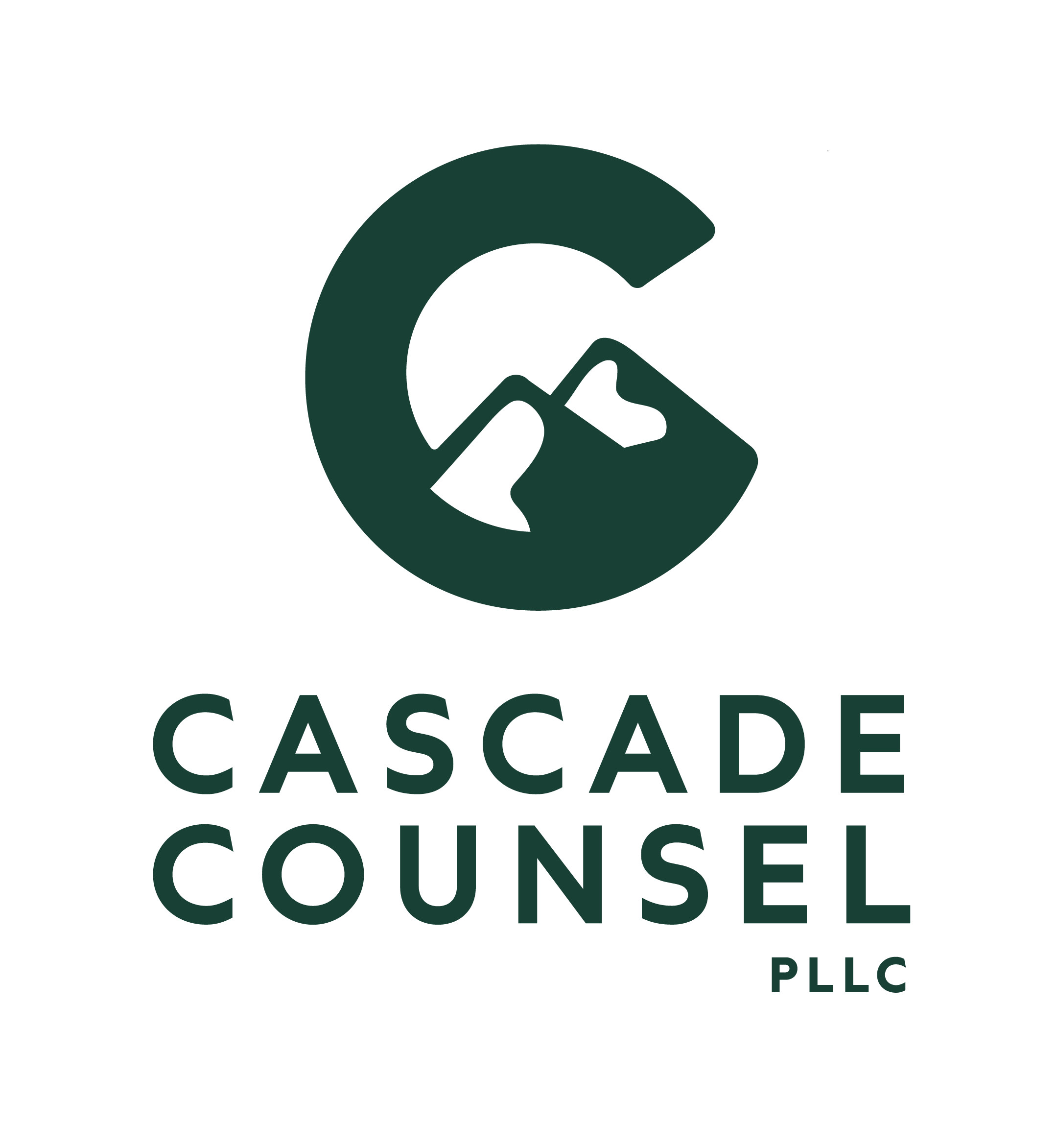Services for Residential Tenants
Legal Services
for Residential Tenants
Facing rental issues? Our expert legal team is here to defend your rights as a tenant and ensure you’re treated fairly every step of the way.
Services for Residential Tenants
While Cascade Counsel primarily serves landlords, we do assist tenants in select situations—especially residential tenants renting from private landlords or navigating informal rental arrangements. This page focuses on common legal issues faced by residential tenants.
Common Challenges Faced by Residential Tenants
Lease Disputes
Confusing or poorly drafted lease terms can easily lead to misunderstandings. Common areas of conflict include:

Term of Lease
In Washington, the distinction between a lease for a fixed term and a periodic tenancy can significantly affect termination rights. Unfortunately, that distinction isn’t always clear from the document.

Utility Rates
It’s essential to know who is responsible for which utility accounts, how billing is handled, and which units are served by each meter. Special compliance requirements apply to landlords for billing in shared meter conditions.

Occupancy
Landlords may require disclosure and screening of additional occupants. However, occupancy limits must be based on legal or safety standards—arbitrary numeric caps can create legal risk.

Pets and Animals
Pet policies should be in the lease including fees, any restrictions, and application processes. Changes to lease terms require notice and cannot be made during a term without agreement.

Increasing Rents
Increases are not permitted during a lease term, other than by agreement. And all increases are prohibited within the first 12 months of tenancy. New rent control laws apply state wide and additional laws apply in some cities, like Seattle. There are also laws against landlords using rent increases to avoid tenant protections for other just causes.

Parking
Like with pets and animals, parking policies should be in the lease, particularly if parking stalls or permits are included.

Non-Rent Charges
Non-rent charges are unenforceable unless included in the lease. To change non-rent charges, landlords must give proper notice or execute updated leases, or notices for changing rules of tenancy in periodic leases. A landlord can evict a tenant for failing to pay rent or essential charges necessary for maintaining possession. These may include utilities like water, electricity, or gas if paid directly to the landlord.

Reasonable Accommodations
Landlords are required to make reasonable accommodations under the ADA and FHA; however, tenants may still need to make the request, provide some information, and cover some costs.

Maintenance Disputes
In many cases, landlords fail to provide the basic maintenance and repair work, leaving tenants living in an uninhabitable property. Proper notice by the tenant and the courts are required for enforcement. At other times, tenants can withhold rent to cover repair costs. But tenants must still allow the landlord reasonable access for inspection and repairs.

Notices and Move Outs
For a periodic tenancy, notice by the tenant must be given in writing at least twenty days before the end of a rental period, such as twenty days before the end of a month for month-to-month tenancies. A failure to provide proper notice will lead to the unit being considered abandoned and additional charges applying. Longer-term leases may also stipulate charges upon early termination, though these charges should not amount to penalties nor forfeit the tenant’s right to have their losses mitigated by the landlord.
Evictions
Landlords may sometimes attempt to evict tenants for minor lease violations or delayed rent payments. Understanding the eviction process and associated legal rights is essential. Under RCW 59.18.650, known as Just Cause Eviction, landlords must adhere to specific procedures:

Identification and Notice
Landlords must clearly identify and serve notice for one or more of the causes authorized by the statute.

Notice Period
The notice period must pass without the tenant curing the issue.

Court Filing
If the tenant has still not vacated the unit, then the landlord may file for unlawful detainer with the superior court where the property is located.
If a landlord attempts to evict a tenant outside the statutory process, the tenant may have valid grounds to contest the eviction. And, in cases where the tenant has been evicted improperly, they may also maintain a claim for wrongful eviction (sometimes referred to as a “self-help” eviction).

Security Deposits & Tenant Protections
- Common Issues: Disputes often arise with small private landlords who may lack formal policies. Some landlords unfairly withhold deposits, especially when there is no written lease.
- Legal Requirements: A deposit cannot be required without a written lease and meeting certain legal conditions. Deductions can only be made for damage beyond normal wear and tear.
- Protecting Your Deposit: Landlords must provide, and tenants should demand, a move-in condition report to document the unit’s state at move-in. While not mandatory, photos provide additional proof and strengthen claims. The report helps ensure fair deductions at move-out.
- Landlord Obligations: Typically, landlords must send invoices, refunds, and a statement within 30 days of move-out.

Complaints
Tenant complaints generally fall into three categories, each requiring different handling. First, a tenant should review their lease for formal processes. If the complaint involves other residents, the tenant should document the issue because their landlord may need this evidence for enforcement. Next, the tenant should ensure their complaint is framed in terms of their own lease terms, not others’. Second, if the complaint has to do with the landlord or rental unit, thorough documentation is especially important, such as requesting repairs in writing. Lastly, if the complaint involves some third party beyond the landlord’s control, then the tenant should be prepared to contact relevant authorities, such as local police. But, if a tenant has received a complaint from their landlord, they should consider reversing these considerations, for example, maintaining detailed records to support compliance efforts.
Insurance
Renter’s insurance provides tenants with financial protection for personal property, liability, and sometimes temporary housing in events like theft, fire, or water damage. Policies often cover items in storage and during moves. While some landlords require it, renter’s insurance is a smart choice to protect belongings and cover liabilities. Typically, tenants purchase individual policies with customizable coverage, sometimes bundled with auto insurance. However, some landlords offer master policies that cover the building but provide limited personal property protection for tenants.
Disclaimer
This article is provided for informational, educational, and marketing purposes only and does not constitute legal advice. The content is current as of its publication or last review and may not reflect the latest legal developments. Do not rely solely on this information—consult a qualified attorney regarding your specific situation.
Protect Your Rights as a Residential Tenant
While Cascade Counsel mainly represents commercial tenants, we understand the challenges residential tenants face, particularly with small, private, and inexperienced landlords. Although court cases are outside our primary focus, we are committed to helping you find the right resources and support to protect your rights, we can also support small claims cases. Need some help with your landlord? Contact Cascade Counsel to schedule a consultation.
